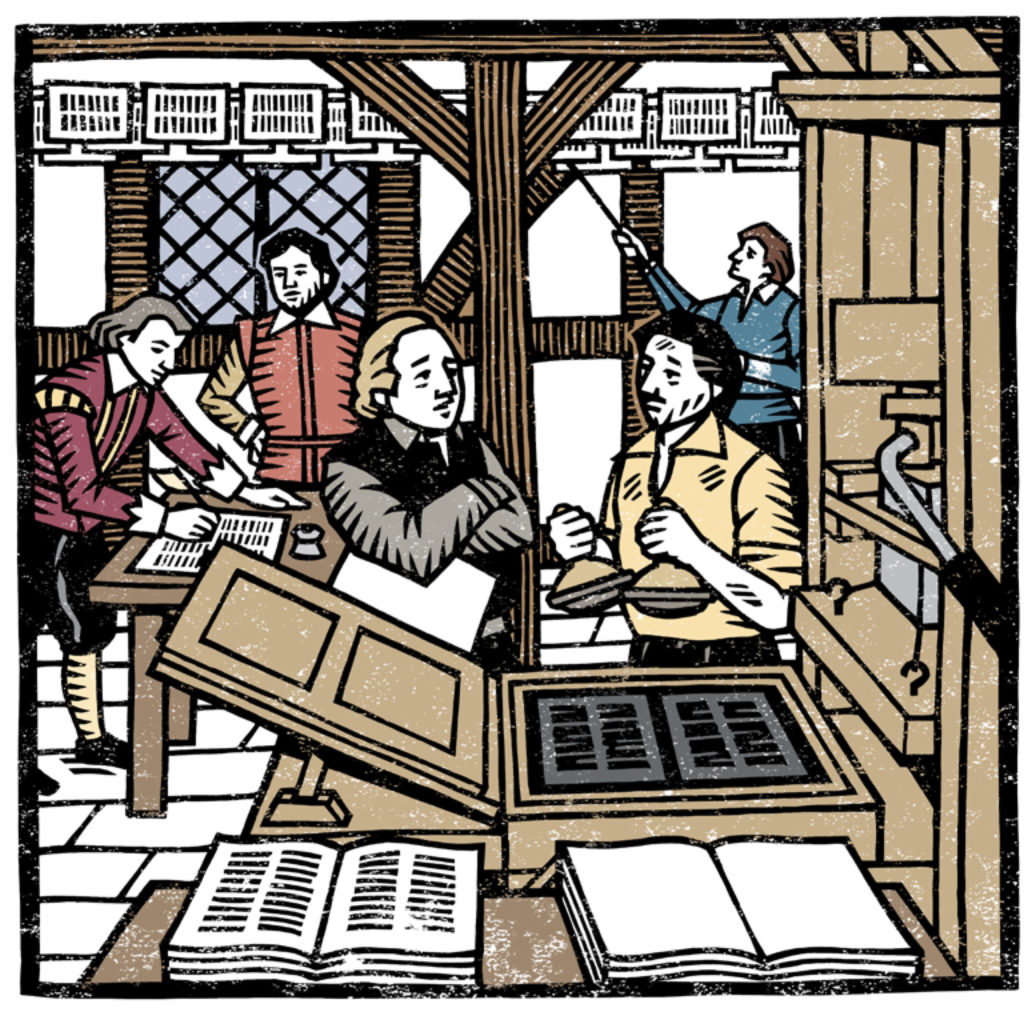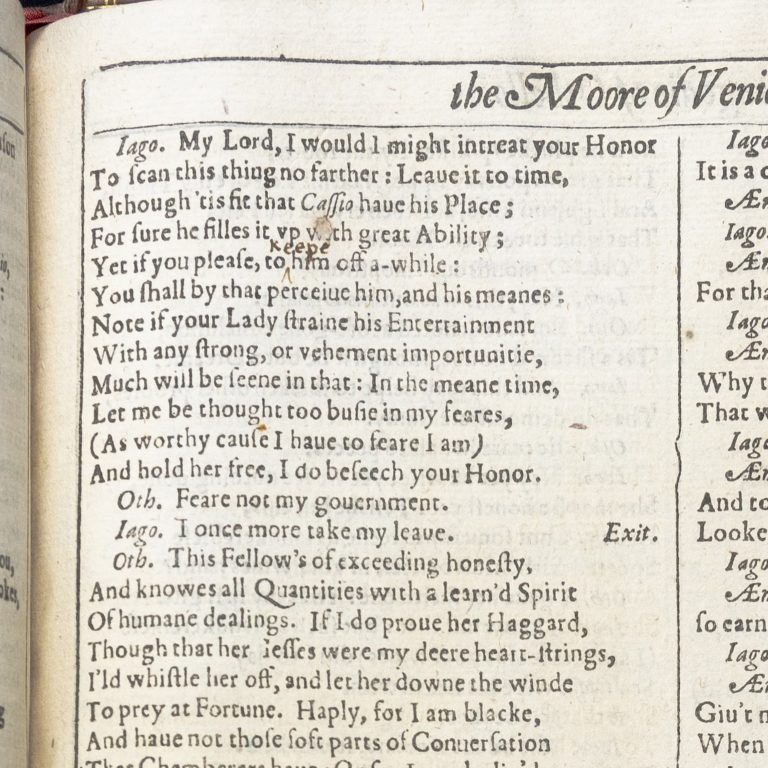
‘the reputation his, and the faults ours’
Mistakes made by compositors could be corrected once the first impressions were made, but many weren’t. Marked prints were still used in the finished books. There is no perfect copy of the First Folio.
First impressions
From the forme assembled by the compositor, prints were made using a ‘printing press’. Two people worked together at the press. One applied ink to the forme, the other handled the paper and operated the press. The forme was put onto a flat stone (the ‘bed’) with the metal types facing upwards. The ink was applied to the forme, using leather pads called ‘ink balls’. A sheet of blank paper was dampened, so it would receive the ink. At one end of the bed was a leather-covered frame, called a ‘tympan’, on which the sheet of paper was fixed. A thin surrounding frame called a ‘frisket’ protected the margins from being stained. Together, tympan, paper and frisket were closed gently down onto the inked forme.
The bed slid sideways to place half of the sheet directly beneath a flat piece of wood called a ‘platen’. A lever was pulled to force the platen down flat onto the back of the tympan. This in turn squeezed the paper evenly onto one half of the forme. The bed was moved and the lever pulled again to press the second half of the forme. The bed was then moved back to its starting position, where the tympan and frisket were raised, and the printed sheet removed and hung up to dry. Once dry, the process was repeated to print another forme on the reverse side of the sheet.
An early impression might be checked for mistakes. If necessary, the forme could be unlocked to make corrections. However, time spent making changes meant time wasted. With no interruptions, about 240 impressions an hour could be made. Corrections might only be made after many prints were already finished; some mistakes weren’t corrected at all. Paper would never be wasted. Prints with mistakes or marked with corrections were still used in books.
Though errors were tolerated in play collections, much greater care was taken with more prestigious publications like The Bible. A printing shop could suffer significant fines, or lose their licence, if they allowed mistakes in high-status books.




